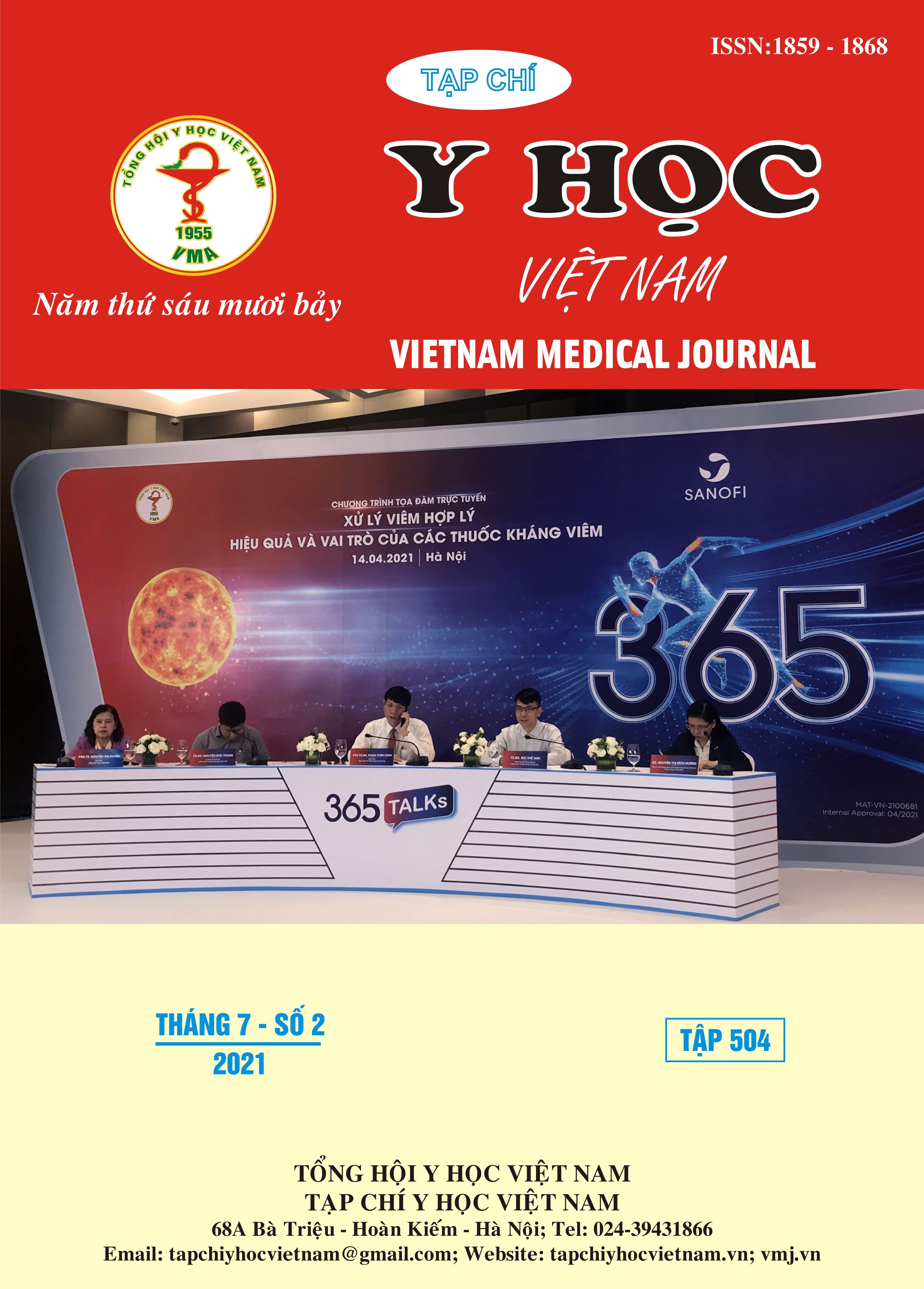QUALITY OF LIFE RELATED TO HEALTH OF CHILDREN WITH BASEDOW USING THE SCALE PedsQLTM 4.0
Main Article Content
Abstract
Objective: To assess the quality of life related to health of children with Basedow. Subject: A total of 80 children with Basedow from 8 to 18 years old were diagnosed, treated and monitored at the National Hospital of Endocrinology from July 2020 to June 2021, and were assessed the health-related quality of life by the scale PedsQLTM 4.0. Method: Descriptive study. Results: The health-related quality of life scores of children with Basedow (from 8 to 18 years old) by the child self-reported in the fields of physical, emotional, social, school and general quality of life respectively: 80,16 ± 11,61; 68,63 ± 10,99; 83,94 ± 7,06; 73,50 ± 9,12; 77,02 ± 8,44. The quality of life (QoL) scores of children with Basedow by their parent proxy-reported respectively: 79,65 ± 7,80; 71,75 ± 10,47; 83,44 ± 6,68; 75,19 ± 6,29; 77,79 ± 5,94. The QoL scores of children with Basedow reported reported by self-children were the lowest in the emotional domain. There is a difference in the QoL scores between children and their parents in the emotional and school domains, but there is no difference between general QoL scores reported by the children and their parents. There is a decrease in the QoL scores reported by children with Basedow in the 13-18 years old age group compared to the 8-12 years old age group in almost fields. The QoL scores reported by children with Basedow in both age groups were significantly lower than those reported by healthy children of the same age, especially in the physical, emotional, school and general general QoL. Conclusion: The health-related quality of life in children with Basedow is impaired compared to healthy children of the same age in almost fields, especially in the physical, emotional and school domains.
Article Details
Keywords
Quality of life, children, Basedow, PedsQLTM 4.0
References
2. Minamitani K, Sato H, Ohye H, et al (2017). Guidelines for the treatment of childhood-onset Graves’ disease in Japan. Clinical Pediatric Endocrinology, 26(2): 29–62.
3. Varni J.W, Seid M, Kurtin P.S (2001). PedsQLTM 4.0: reliability and validity of the Pediatric Quality of Life InventoryTM version 4.0 generic core scales in healthy and patient populations. Medical Care, 39(8): 800–812.
4. Lane L.C, Rankin J., Cheetham T. (2021). A survey of the young person’s experience of Graves’ disease and its management. Clinical Endocrinology, 94(2): 330–340.
5. Riguetto C.M, Neto A.M, Tambascia M.A et al (2018). The relationship between quality of life, cognition, and thyroid status in Graves’ disease. Endocrine, 63(1): 87–93.


